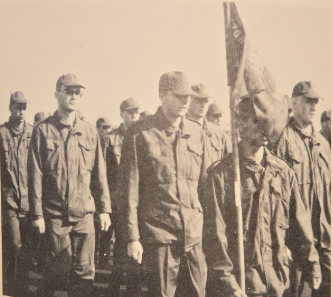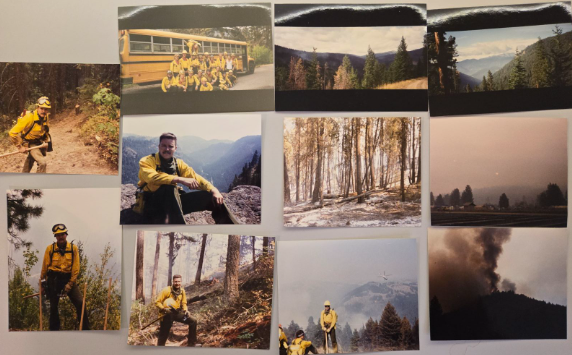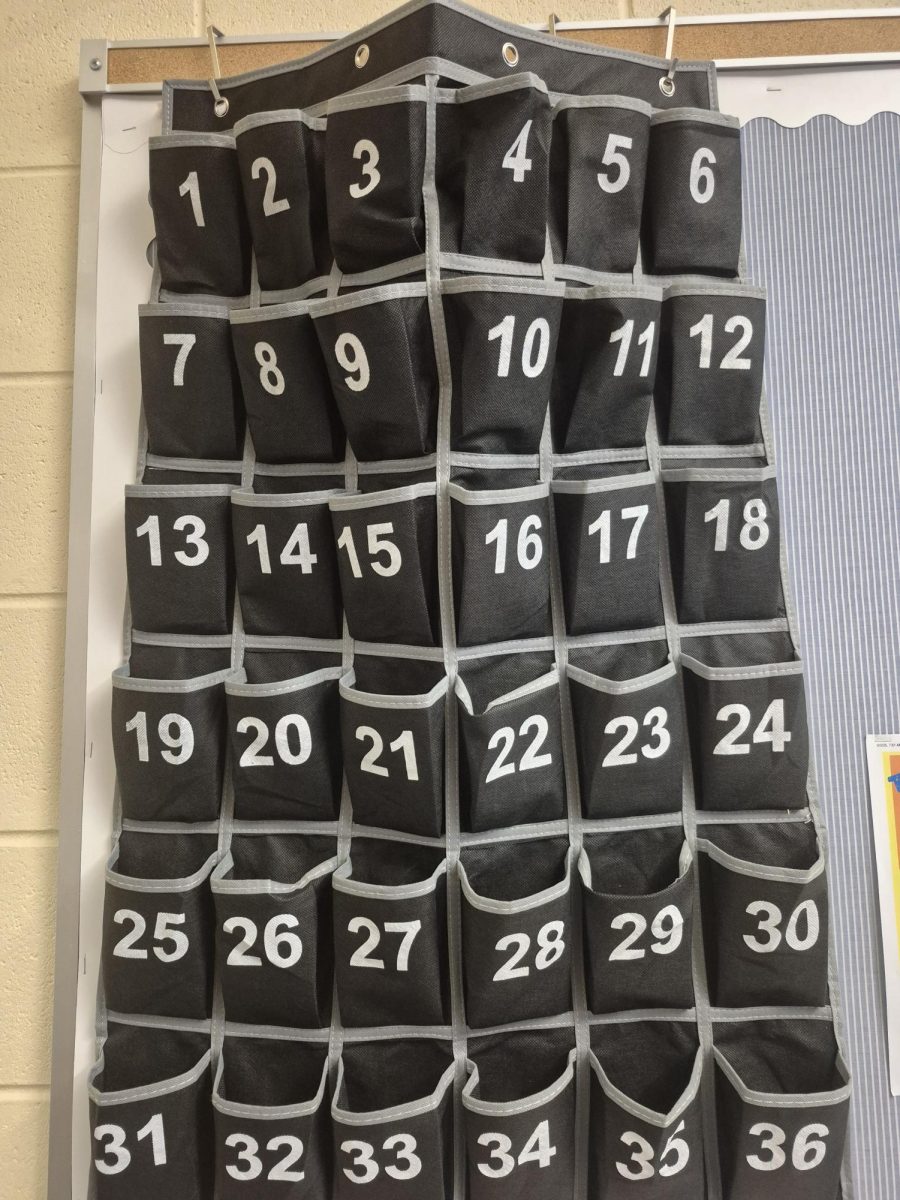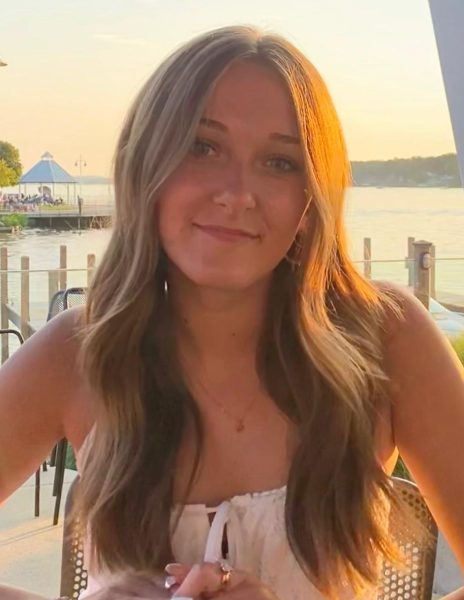
His feet were moving so quickly his body felt unsteady. Kicking up mud and loose sand into his eyes, he threw himself into the pond, barreling as deep as he could for fear of the deadly fire drawing in at rapid speed.
Scott Weliver, Holland citizen, father, and role model, has lived an extraordinary life. Balancing the Air Force, a job with the National Forest Service fighting wildfires across the US, and schooling for his college degree, Weliver’s personal stories are unlike any other ordinary life.
Growing up in the care of two loving parents in Charlevoix, Michigan, Weliver grew up to be an independent, charismatic role model to those around him.
Weliver impacted several of those around him through periods of his life, but his first was the impact left on his parents.
—
As an underclassman high school student, he worked as a newspaper boy, then worked at a local hardware store, and eventually became the night/weekend manager. Later in high school, he worked at the Humane Society and an auto parts store.
His hobbies included RC car racing, Boy Scouts, and sailing boats.
After high school, he was given the options to go to college, enlist, or get a job. Starting a year of college at Lawrence Institute of Technology, he studied architecture, but felt as if his heart wasn’t in it. The following summer, his mind began to wander, and he found himself considering enlisting. He discovered that enlisting would guarantee him an engineering assistant job in the Air Force, so he joined.
The impact created from his decision left his family proud and excited to see what was in store for him.
The Air Force swept him up immediately, and he was transferred from Texas to Okinawa, Japan, to Sacramento, California. He terminated his enlistment in 1991 to go back to college after a four year enlistment.
After applying to Michigan State, he was accepted and moved into a dorm six months later. Needing a summer job to fulfill his time, his interest spiked with the National Forest Service. Because of his military background, he was bumped up on the N.F.S. applications. Weliver applied to various places, and the first to take him was Alaska on the Kenai Peninsula. He spent his summer here fighting wildfires in the Chugach National Forest.
The summer spent in Alaska was said to have been some of the most exciting, scary, and thrilling experiences he’s ever had. Weliver’s most memorable experience was on a normal day, not distinct from any other.
At the time, one of his most enjoyable hobbies was mountain biking.
Weliver was biking through the Chugach National Forest in Alaska in the early evening when he passed a large moose. Curious and minimally nervous, he continued to bike past, but at full speed, the moose charged at him and followed him closely for the next 3 miles. Having to weave through the woods as nightfall drew, he was nervous, but after extended time, the moose let off his trail and left him terrified and exhausted.
Another eventful memory was also during his time spent in Alaska. During a normal day putting out wildfires through the Kenai Peninsula, National Forest Service workers worked on their tasks near camp.
 “We didn’t know it, but the fire was starting to shoot up the other side of the mountainside to the west of us. More and more hot spots started to spread. Then, all of a sudden, the wind picked up, and the sky turned completely black. The fire was moving so fast that it was jumping over the valley. There were still people in houses trying to spray water on their roofs. Then the whole woods were on fire, and we started to run for the river,” Weliver said.
“We didn’t know it, but the fire was starting to shoot up the other side of the mountainside to the west of us. More and more hot spots started to spread. Then, all of a sudden, the wind picked up, and the sky turned completely black. The fire was moving so fast that it was jumping over the valley. There were still people in houses trying to spray water on their roofs. Then the whole woods were on fire, and we started to run for the river,” Weliver said.
“I remember running around someone’s house, and they were standing in the front yard and didn’t know what was happening. We told him to drop the hose and run with us. The propane tank behind their house went up and caused a small fire tornado that we could see over the top of the house. We started to run down the road as far as we could, which was near the river. We ended up jumping into the shallow river, away from the trees. The fire basically jumped right over us and was gone in another 2 minutes,” Weliver said.
Those in the town around wildfire hotspots continuously praised and thanked Weliver and his team for their work. Their impact through the National Forest Service saved thousands of acres of forest that held life to people, plants, and animals.
During his time in Alaska, Weliver’s main job was to clean up trails and campsites of excess trees and fallen timber. Nearing the summer solstice, the sun never quite set. Daylight covered the sky for 24 hours a day.
“We would work from 7:00 a.m. to 5:00 p.m., go back to the bunkhouse and get a nap, eat dinner, then go hiking,” Weliver said.
During a time when Weliver and his peers were biking up to a mountainside lake, they found an old sled and went sledding the first week of July. Bringing a small fishing pole and fry pan, they caught Arctic Grayling out of the lake and fried them over a fire before biking out further.
Catching your own food was the only option for food outside of what’s served at camp.
“The following summer, I applied and got accepted in Pennsylvania, but spent 45 days fighting fires in Oregon and Washington State. The last summer I spent in Colorado,” Weliver said.
In Wenatchee, Washington, Weliver and his companions were set up to sleep on the football field of a nearby high school.
“We didn’t even put up tents, we just laid out our bags in groups. We worked 13 to 15 hours a day and were dog tired at the end of it. We would eat dinner and then lay in our sleeping bags as it got dark and you could see the whole mountainside a mile away that was engulfed in flames,” Weliver said.
After his few summers with the National Forest Service, he graduated with his bachelor’s degree in engineering and got engaged to Rebecca Gulian, whom he met at Michigan State. In the following years, they got married and started a family.
Weliver enjoys talking about his experiences, and in past years he has spoken in elementary school classrooms about his experience with the National Forest Service fighting wildfires.
Weliver’s impact on adolescent culture has allowed him to demonstrate that there are a variety of options available for teenagers who aren’t considering going to college or who have already graduated. His influence showed that planning your future outside of your hometown opens up new outlets for opportunity.







